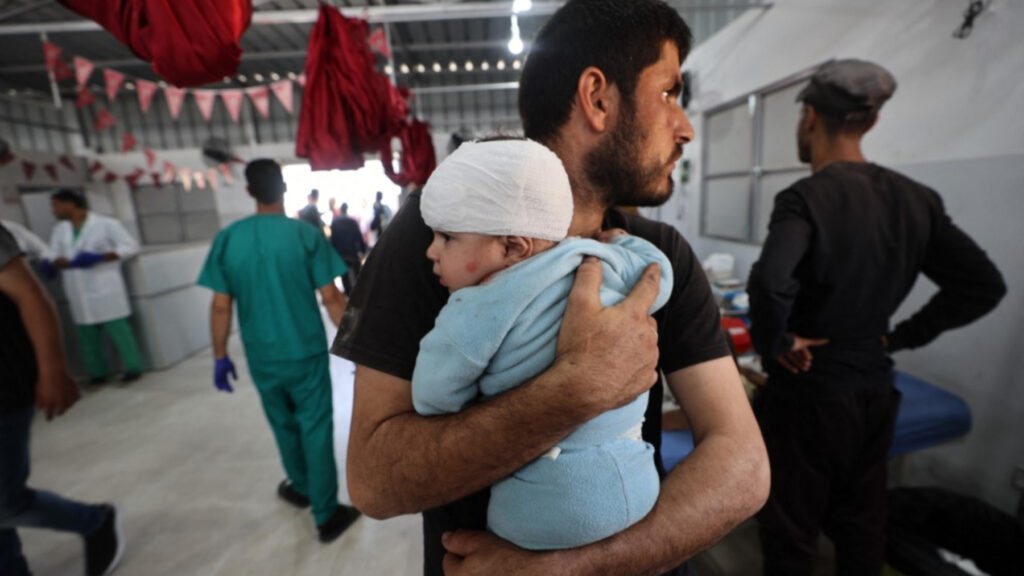A United Nations chief warned on Tuesday that up to “14,000 babies” in Gaza could die “within the next 48 hours” if humanitarian aid doesn’t reach them promptly.
Speaking to BBC Radio 4’s Today programme, the UN’s humanitarian chief Tom Fletcher emphasised the urgency of the situation, saying that thousands of trucks loaded with baby food and nutritional supplies are ready to enter Gaza but remain stalled at the border.
“This is not food that Hamas is going to steal,” Fletcher said. “We run the risk of looting. We run the risks of being hit as part of the Israeli military offensive. We run all sorts of risk trying to get that baby food through to those mothers who cannot feed their children right now because they’re malnourished.”
On Monday evening, Israel allowed five aid trucks carrying baby food and other essential supplies to enter Gaza through the Karem Abu Salem (Kerem Shalom) crossing, situated at the southern tip of the Gaza Strip, marking the first such delivery in nearly three months.
Fletcher however described the delivery as a “drop in the ocean” and added that the aid had not yet reached the communities in need.
New MEE newsletter: Jerusalem Dispatch
Sign up to get the latest insights and analysis on
Israel-Palestine, alongside Turkey Unpacked and other MEE newsletters
The humanitarian crisis in Gaza has escalated dramatically over the past 11 weeks due to a total blockade imposed by Israel, which has severely restricted the entry of food, medicine, and fuel into the territory. According to the UN-backed Integrated Food Security Phase Classification, one in five Gazans faces starvation, and nearly 71,000 children under five are at risk of acute malnutrition.
International pressure on Israel to ease the blockade has recently intensified. On Monday, the UK, France, and Canada said they would take “concrete actions” against Israel if it did not lift restrictions on aid and halt its renewed offensive in Gaza.
An additional joint statement, signed by 22 countries, also urged Israel to fully resume impartial humanitarian operations.

Gaza genocide: How Arab regimes became the enemy within
Read More »
Israeli Prime Minister Benjamin Netanyahu was forced to ease the devastating 11-week aid blockade on Sunday night, saying it was necessary for Israel to prevent a “starvation crisis” in Gaza for “diplomatic reasons”.
Meanwhile, Israeli air strikes have intensified across Gaza with at least 60 people, more than half being women and children, killed overnight on Monday.
More than 300 Palestinians were killed over only the last three days, according to the health ministry.
The UN also said that people are dying from preventable diseases as medicines wait at the border, while attacks on hospitals deny people care and deter them from seeking it.
Over the past week, Israeli strikes rendered Gaza European Hospital in Khan Younis, southern Gaza, and the Indonesian Hospital in northern Gaza non-operational, forcing the evacuation of thousands and cutting off access to critical medical services for already vulnerable communities.

